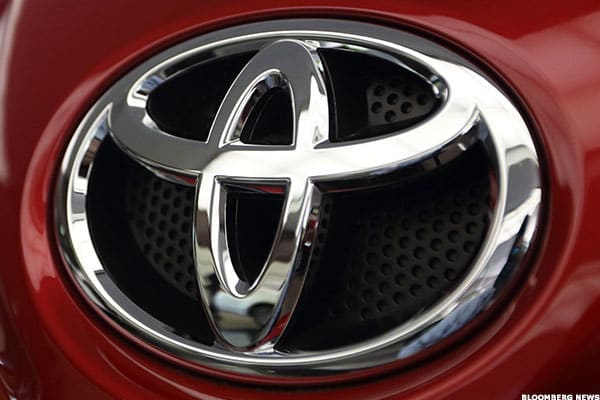
Toyota (TM) is amping up in the U.S.
The company is looking to make about 200,000 EVs in the U.S. annually from 2026 onward, accounting for nearly 20% of its output in the country, along with production in Japan, China and India.
Toyota wants to supply 1 million worldwide per year by that time, the Nikkei has reported.
DON'T MISS: Netflix Really Wants You To Buy An Electric Vehicle
The move marked a major change for the company, which, under Akio Toyoda, the outgoing CEO and grandson of the founder, has been reluctant to embrace EVs.
The maker of the Camry sedan had instead developed hybrid vehicles, like its bestselling Prius model, and pushed for hydrogen-fuel-cell cars.
Toyota had also argued that not enough charging stations had been installed to support widespread adoption of electric vehicles.
Now, the company is making another major step in its U.S. efforts.
Toyota to Build Electric SUVs in Kentucky
The Japanese auto giant is planning to start producing mid-to-large-sized electric SUVs in Kentucky, according to Nikkei Business.
One of the world's largest automakers, Toyota will update an existing factory to make electric models alongside gasoline-fueled autos. It intends to produce 10,000 electric sport utility vehicles monthly by the end of 2025.
In addition to this facility, Toyota is building a $1.29 billion battery plant. The new facility will be located in Liberty, near Greensboro, N.C., and is slated to come online in the same year.
Electric Vehicle Sales Are Climbing
As TheStreet's Luc Olinga has reported, the shift in strategy will rely on Lexus, Toyota's premium brand, of which Sato was president before being promoted.
He said that the next generation of Lexus electric cars will be developed by 2026, "optimizing everything from the battery to the platform to how a car is produced, while expanding our current lineup."
Electric vehicles are becoming increasingly popular in the U.S., which is Toyota's largest market and accounts for one-fifth of its worldwide sales.
EV sales in the U.S rose by two-thirds in 2022, comprising 5.8% of all new vehicles sold, according to J.D. Power, a significant increase from the 3.2% market share in 2021.
J.D. Power said automakers introduced new electrified truck and SUV models last year and the list of body styles coming in 2023 and beyond is even more varied. The number of brands introducing their first EV model is also growing.
"These new EV models are arriving at a critical time for car shoppers," the firm said, noting last year's Inflation Reduction Act. "The federal government dramatically changed how an EV qualifies for the maximum $7,500 tax credit in late 2022."







